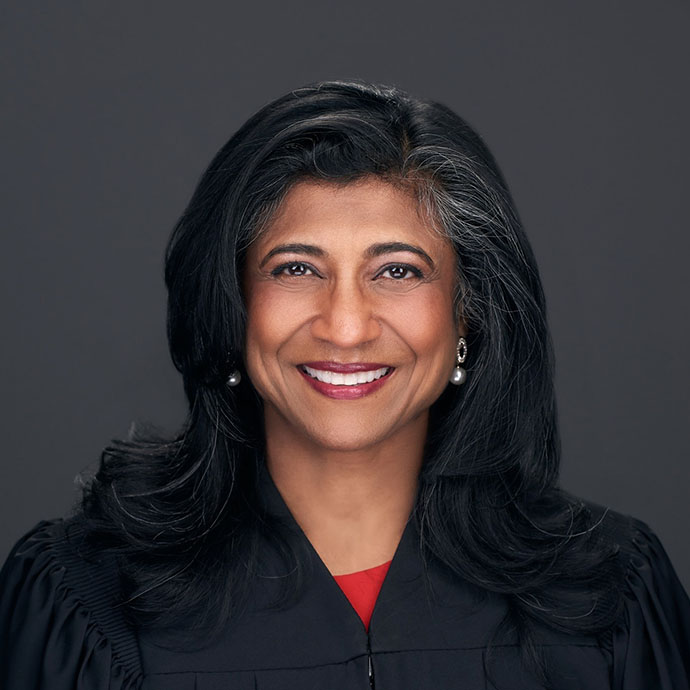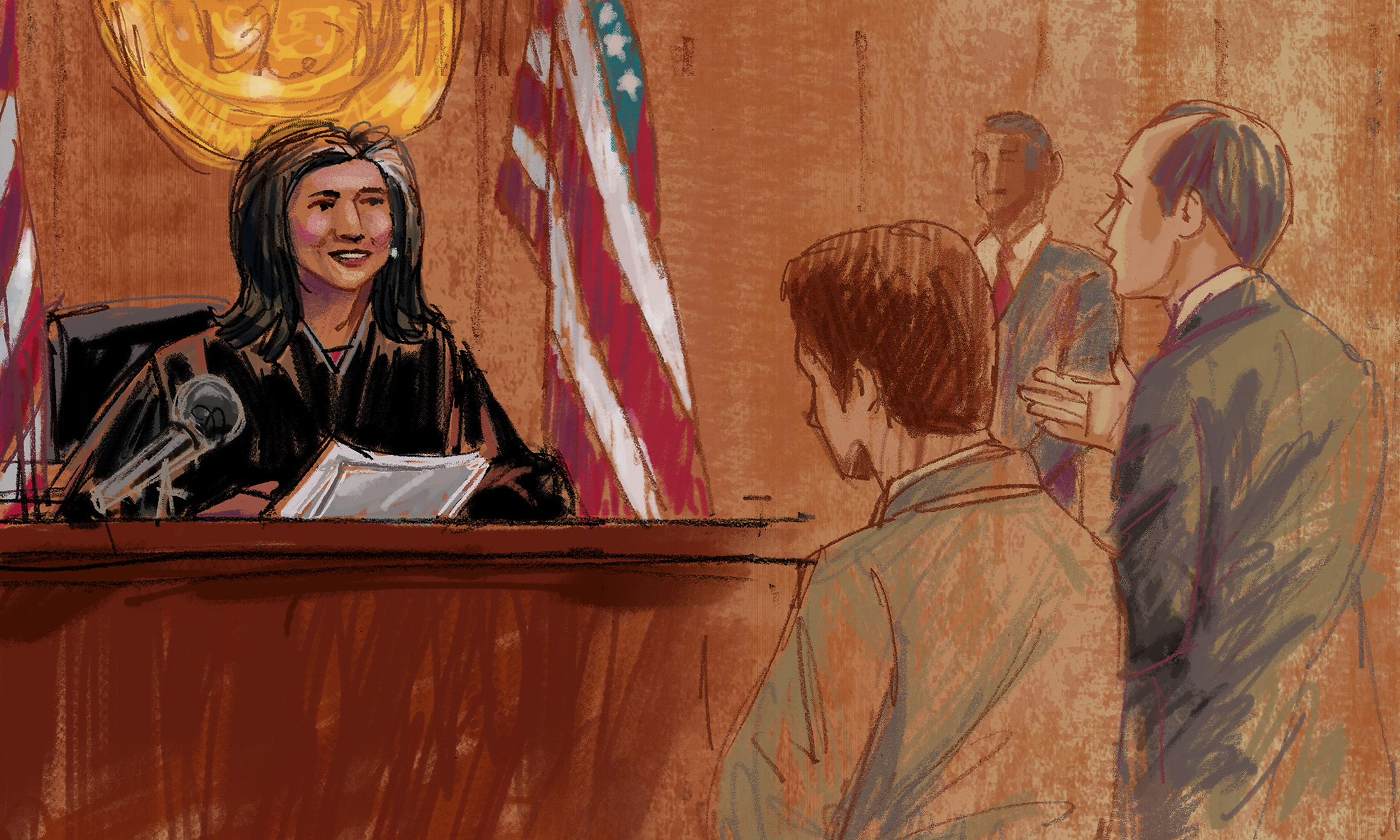All Rise
A conversation with the Honorable Judge Rena Marie Van Tine
 |
The Honorable Judge Rena Marie (David) Van Tine, CAS ’82, is on the leading edge of inclusion in the legal field, being the first female Indian American judge in the nation to serve on a state court. We sat down with Judge Van Tine who earned her bachelor’s of general studies with minors in computer science, human resource development and communications.
When did you decide you wanted to pursue a career in law?
After graduating from OU, I completed one semester in graduate school at Michigan State University, studying intercultural communications. During that time, I took the LSAT and decided that I would like to experience living in New York. I decided to attend New York Law School.
Why did you decide to attend Oakland University?
It was a university that was close to home and, at that time, gave all faculty and their dependents free tuition. My mother, Dr. Indra David, was a faculty member for the library. After I graduated, she went on to become the dean of Oakland University’s library.
What do you remember most about your undergraduate experience at OU?
I loved the opportunity to work in a real-life work environment and gain great experience for law school. I worked for the then vice president’s administrative assistant, as well as one of the accountants in the office. I also had the opportunity to work at Meadow Brook Music Festival in the summer and attended many concerts. I spent a lot of time reflecting on life at the foosball and pool tables. I also spent way too many quarters on video machines and pinball machines, but I learned a lot about life from my fellow OU students.
What is your favorite part of the legal work you do?
I enjoy resolving disputes between parties so that people have closure on their legal issues; deciding what the right thing to do is, rather than being an advocate for either side. I also enjoy the intellectual part of the job, researching the law and applying it correctly, fairly and equally. I love jury trials because I get to see lawyers at their very best and see how a group of 12 people can unanimously come to a decision on what the facts of the case are.
Why did you switch from being a lawyer to a judge?
I have been practicing law for 35 years. As an assistant states’ attorney, I advocated for the victims of hundreds of violent felonies including murder, rape and armed robbery. As a criminal defense attorney, I protected the constitutional rights of defendants charged with misdemeanors. I also defended Cook County Hospital and other government-run medical facilities against medical negligence cases, and I’ve been a plaintiff’s lawyer representing injured parties in a variety of tort cases. I’ve worked in private practice and in the government. I appeared before many judges over the course of my career as a lawyer, and somewhere along the line, I decided that being a judge was something that I would be good at too.
How was that transition?
With a well-rounded legal background, my transition to the bench went smoothly. I enjoyed the transition from my role as an advocate, to making the correct and final decisions in court. I was initially surprised at how solitary the job was. I no longer celebrate or bemoan the outcome of cases with colleagues. I simply decide and move on to the next case. Luckily, I have a fabulous network of judge friends with whom I can discuss the law with as I’m ethically prohibited from discussing cases with anyone else.
Was advocating for inclusion always a career goal?
Yes. The judiciary is stronger when it is reflective of the people who we serve. It’s important that we have judges from all backgrounds, or people will lose confidence in the system.
Have you seen the practice of law change throughout your career?
Yes. I think it’s become more accepting of women and minorities, but there is still room for considerable improvement. I am happy to report that I no longer get mistaken for the court clerk, the court reporter, the secretary or the law clerk. My role as judge is easier to identify as I wear a black robe and I am physically seated on the bench higher than anyone else in the courtroom.
What advice would you give to young lawyers, especially OU students, following in your footsteps?
Going to law school is a great idea. We always need more good lawyers in our profession. It doesn’t matter what your major is, you have the background for law school. Outstanding grades and LSAT scores are helpful, but not necessarily essential. You can do it!
What are you most proud of in your career?
I’m most proud of helping thousands of abused and neglected children when I sat in the Child Protection Courts. Some of these children had delinquency cases pending too. It was sad but rewarding work when I could change people’s lives for the better. In 2021, the Illinois Supreme Court elevated me to a Circuit Court position. The promotion in the judiciary makes me more influential in deciding who should be appointed to the judiciary and whom our Chief Judge should be.


 April 15, 2022
April 15, 2022
 By Laura Phillips and Michael Downes
By Laura Phillips and Michael Downes
